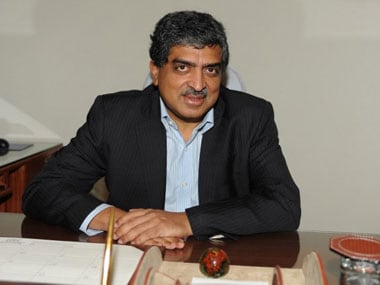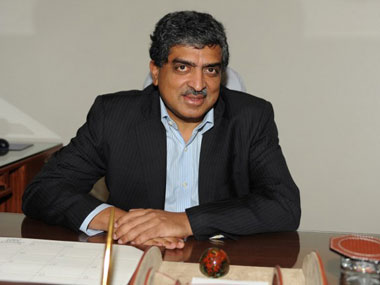Let us face it, what we have just witnessed in Infosys, the darling of good boy behaviour in India’s stock market history, is the corporate equivalent of a gangster shootout in a mafia movie. And so, as we cheer the return of co-founder Nandan Nilekani as the non-executive chairman of the software bellwether after its year of living dangerously, the company’s founders, management, shareholders and employees need to face a harsh truth: there’s big bloody mess to clear up. With the chairman quitting, co-chairman demoted and other directors exiting, there has been a purge at the top. Both the legacy of a daring strategy crafted by the glamorous CEO Vishal Sikka who left last week and the questions raised on his reign by elder statesman NR Naryana Murthy remain on the table. [caption id=“attachment_3972031” align=“alignleft” width=“380”]  Nandan Nilekani. Reuters[/caption] You cannot quite see red stains on the green grass of the lush-green Electronic City campus in Bangalore, but there are wounds that need healing and scars that need more than cosmetic surgery. This is not the same Infosys that Nilekani left, but the good news is that this is not the same Nilekani that Infosys saw in the past. A company that needs to leapfrog from being an affordable coding shop for multinationals to an innovative giant in an age of automation will be seeing the return of a man who left to build one of history’s best digital governance foundations through the Aadhar identity number platform. Nilekani’s awesomeness now faces an awful mess. He needs all the auspiciousness of the Ganesh Chathurthi day he comes into play to do what he needs to do. In an indication of ground realities, former employees have been cheering Murthy, and there is little doubt much of the 200,000-strong army of disciplined software engineers adore the founders, who now control only 13 percent of the stakes. But something in employee loyalty smells of a trade union approach. Sikka said last week that his product-and-innovation-led approach had left a strategy for the services company to follow for the next 30 years, and Ravi Venkatesan acknowledged this contribution as one to stay, despite all the acrimony. Nilekani’s challenge is to reconcile the old and new schools of thought . Some of Sikka’s blue-eyed boys and girls at the senior levels have also left, leaving a significant vacuum at the top. Questions loom. How will Nilekani bring back or enhance the spirit of innovation that Sikka left behind? Will Nilekani gloss over the controversial Panaya acquisition that was both a lynchpin for Sikka’s strategy and a battle zone for Murthy’s openly declared war on the R. Seshasayee-led board? Or will he reopen the wounds? How will he steer employees to a new culture and restless shareholders to accept continuity while they loved the changes that Sikka was bringing? As one key foreign institutional investor says, he does not want to see a 180-degree turn and strategy is a key question. Foreign portfolio investors, passive on the face of it but alert beneath their calm, control 37 percent of stakes in Infosys. The best thing about Nilekani I can say, having known him for two decades, is that he can be pleasantly curt. He is no ostrich. He is not a bull in a china shop like Sikka either. He needs to tell thousands of employees in a more acceptable manner that they need to change, so that foreign investors do not see the 180-degree turn they fear. As an eager IIT-Powai graduate, Nilekani understands emerging trends of technology and the potential they have for change. His book, Imagining India, laid the foundations of the revolutionary Aadhar project. He does not exactly need lessons in innovation from Sikka. The best thing going for him is that amid all the boardroom acrimony, Nilekani maintained a studied silence that now weighs in his favour. Conflicting parties will give him the benefit of the doubt – at least for a while. He is not a groupie among the old co-founders either. He has sharp, searching eyes that also have a faraway look. What Infosys needs next is a strong set of second-rung managers who respect Murthy’s old-world austerity as much as new-age innovation. Nilekani’s big task is to build an elite digital air force of innovative leaders to support a huge code army below. Make no mistake, this is a long-haul problem for Infosys. (The author is a senior journalist. He tweets as @madversity)
Nandan Nilekani’s big task is to build an elite digital air force of innovative leaders at Infosys to support a huge code army below. Make no mistake, this is a long-haul problem for Infosys
Advertisement
End of Article


)




